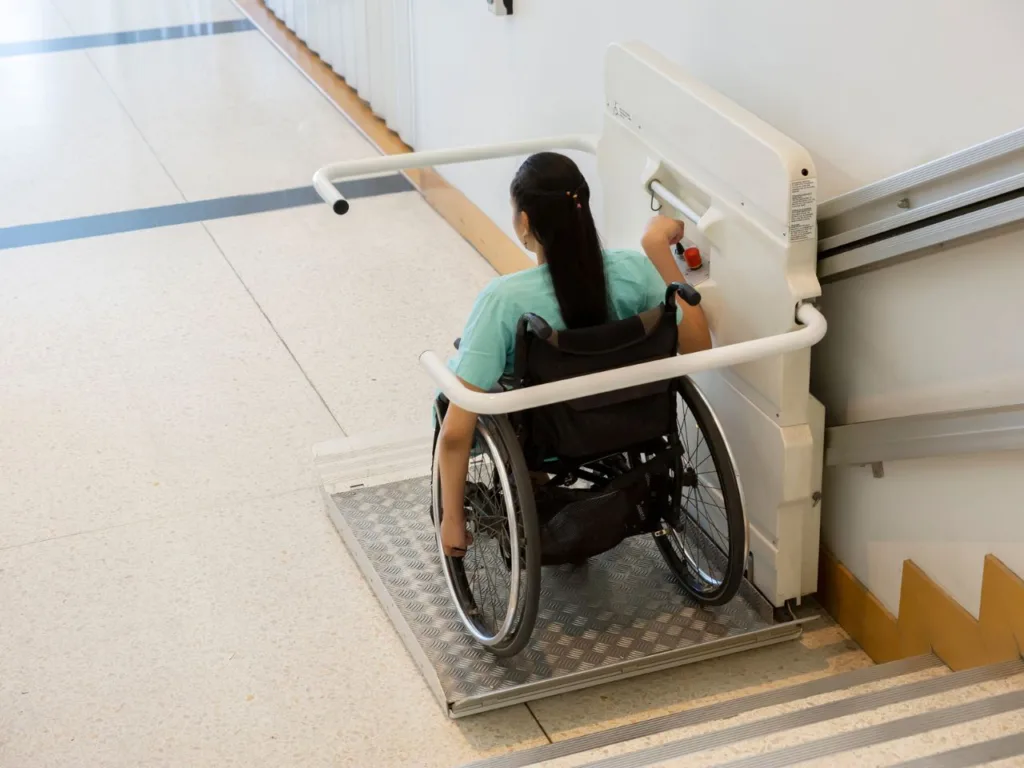Updated on September 12, 2024

The importance of early detection of autism during pregnancy
ASD is typically diagnosed in early childhood by the age of two or three. The diagnosis is based on observing a child’s behaviour and development, rather than through a medical test like a blood test or imaging scan.
Early intervention
The earlier autism is identified, the sooner it is to intervene. Early intervention programs like behavioural therapy, speech therapy, and social skills training, have been shown to improve the development of children with autism. Recognizing autism early means parents and caregivers can implement these programs shortly after birth. With this, the chances of better outcomes in development are higher.
Informed parenting decisions
Early detection could help parents prepare emotionally for raising a child with autism. They also prepare what they need to make the development process easier. They could research support systems, therapies, and educational resources well in advance, making caring for their child more manageable.
Health monitoring and support
When there’s early awareness of a child’s likelihood of having autism, medical professionals can closely monitor the child’s development from birth and ensure that any signs of delays or challenges are addressed immediately. This can be an advantage in optimizing health outcomes for the better.
Personalized developmental milestones
Every child develops at a different pace, but early knowledge of autism risk could allow parents to adapt expectations and strategies for their child’s growth. This may help to reduce the anxiety and stress associated with unclear developmental milestones and help parents to set realistic goals.
Genetic counseling
If the risk of autism is detected early, parents can seek genetic counseling to understand better how autism could impact future pregnancies or siblings. This information could help in family planning and help parents make informed decisions about expanding their family.
Access to resources and support networks
Early detection means families can connect with autism support networks and resources immediately. This early connection can lead to a stronger support system, reducing feelings of isolation and providing guidance on the journey ahead.
Current methods of prenatal testing
- Ultrasound: This is an imaging test that is used to monitor the growth and development of the fetus.
- Amniocentesis: This test involves taking a small sample of the amniotic fluid to test for genetic conditions.
- Chorionic Villus Sampling (CVS): A sample of the placenta is taken to test for chromosomal abnormalities.
- Non-Invasive Prenatal Testing (NIPT): This blood test analyzes small fragments of fetal DNA circulating in the mother’s blood to detect certain genetic conditions.
Possible risk factors for autism during pregnancy
Older parents
The risk of having a child with autism increases with the age of both parents, particularly if the mother is 35 or older and/or the father is 40 or older. The association between advanced parental age and autism may be due to genetic mutations or other factors linked to aging.
Genetic mutations
Some children may inherit genetic variations from their parents, while others develop spontaneous genetic mutations that contribute to autism. Although these mutations are not detectable during pregnancy, a family history of autism or certain genetic disorders may increase the risk.
Gestational diabetes
Mothers who develop gestational diabetes during pregnancy may have an increased risk of giving birth to a child with autism. Research suggests that elevated blood sugar levels can affect fetal brain development.
Medications
Some medications taken during pregnancy, such as certain anticonvulsants (e.g., valproate) and mood stabilizers, have been associated with an increased risk of autism. Expectant mothers need to discuss all medications with their healthcare provider.
Infections during pregnancy
Viral or bacterial infections during pregnancy, particularly during the first trimester, may be linked to a higher risk of autism. Rubella (German measles), cytomegalovirus (CMV), and other infections have been associated with neurodevelopmental disorders, including autism. Also, prolonged fever during pregnancy, especially if not managed properly, may increase the risk of autism. It’s believed that inflammation caused by infection and fever could affect the developing brain.
Nutritional deficiencies
Nutritional substances like folic acid and vitamin D are important, and deficiencies during pregnancy can increase the risk of autism. Folic acid is essential for proper brain and neural development, and taking prenatal vitamins with adequate folic acid is recommended. Vitamin D plays a role in brain development, and a deficiency could have long-term effects on the child’s neurodevelopment.
Complications during pregnancy or birth
Babies born prematurely (before 37 weeks) or with a low birth weight are at an increased risk of autism. Premature birth can cause delays in development, including autism, as the baby’s brain may not have had enough time to fully develop in the womb. Also, difficulties during delivery, such as oxygen deprivation (hypoxia), can increase the risk of neurodevelopmental disorders like autism.
Challenges of testing for autism during pregnancy
Complexity of Autism
Autism is a complex developmental disorder that’s influenced by a combination of genetic and environmental factors. There isn’t a single cause or gene responsible for autism and that makes it difficult to pinpoint specific markers that could be tested during pregnancy. Instead, multiple genes and environmental influences play a role in determining whether a child will develop autism, and this complexity makes testing challenging.
Absence of a single genetic marker
Unlike conditions like Down syndrome, which is caused by a specific chromosomal abnormality, autism does not have any singular genetic marker. While many genes have been associated with autism, these genes do not fully explain the condition or predict how severe it can be. Also, some genetic variants associated with autism are present in persons who do not have the disorder, which further complicates efforts to develop a test based on genetic information alone.
Role of environmental factors
Autism is not just influenced by genetics, the environment during pregnancy is also a contributing factor that can contribute to its development. These factors include maternal infections, exposure to toxins, gestational diabetes, and stress during pregnancy. But, these factors are difficult to measure and predict, and they do not lend themselves to a straightforward prenatal test. Additionally, environmental factors often interact with genetic predispositions in complex ways that are not fully understood.
Timing of brain development
Autism is a neurodevelopmental disorder, and much of the brain development that contributes to autism symptoms happens after birth, particularly in the early years of life. While researchers are exploring early markers of brain differences that may be detectable before birth, many of the behavioural and cognitive signs of autism happen during childhood as the brain develops. This makes it difficult to test for autism during pregnancy since the key developmental processes are still ongoing.
Ethical and social concerns
The development of a prenatal test for autism raises significant ethical questions. Some fear that prenatal testing for autism could lead to difficult decisions about terminating pregnancies, especially given the wide range of abilities and outcomes for individuals with autism. There are also concerns that a prenatal test might promote negative stereotypes about autism, which can potentially stigmatize individuals with the condition.
Uncertainty in genetic predictions
Even if the genetic markers associated with autism are detected, it is difficult to predict how these genes will manifest in an individual. Some people with autism-related genes may have mild symptoms or none at all, while others may experience significant challenges. This difference in the expression of autism-related genes makes it difficult to predict outcomes based on genetic information alone, leading to uncertainty in any potential test. Moreover, although genetic research has identified many genes associated with autism, scientists are still working to understand how these genes work. This incomplete understanding makes it difficult to develop a test that can accurately predict whether a fetus will develop autism.
Potential for overdiagnosis or misdiagnosis
Due to the complexity of autism and the lack of a clear genetic marker, there is a risk of false positives in any potential prenatal test. This could lead to unnecessary stress and anxiety for expectant parents, as well as difficult decisions based on uncertain or inaccurate information. Even if a genetic marker for autism were identified, interpreting the results of a prenatal test would be difficult. Since autism is a spectrum disorder with a wide range of symptoms and severities, it would be challenging to predict how a fetus with certain genetic markers would be affected
The role of early intervention
While prenatal testing for autism is not currently 100% definite, early intervention remains important for children with autism. Diagnosing and intervening early can significantly improve outcomes for children with ASD. Examples of early intervention programs include speech therapy, occupational therapy, behavioural therapy, and social skills training.
Parents who are worried about their child’s development can consult with their healthcare provider and seek a comprehensive evaluation from a specialist if needed. Early identification of developmental delays and autism-related behaviours can lead to timely support and resources that can make a significant difference in a child’s life.
How to support a parent who’s expecting an autistic child during pregnancy
Provide emotional support
Be there to listen. Simply being a good listener can provide comfort to an expecting parent. Allow them to express their concerns, fears, and hopes without judgment. Sometimes, it’s important to be that person that will listen and validate their feelings. Also remind them that every child is unique, and many children with autism lead fulfilling and happy lives. It’s important to encourage them without dismissing their concerns.
Provide practical resources
Early intervention programs can make a significant difference in the development of a child with autism. Provide them with information about early intervention services around them and how they can access these resources once the baby is born. You can also help them find specialists like pediatricians, neurologists, or therapists who specialize in working with children on the autism spectrum. These connections will make it easier to navigate the healthcare system once the baby arrives.
Offer practical assistance
Expecting a child, especially one who may have additional needs can be overwhelming. Offer to assist with practical preparations, such as setting up the nursery, baby-proofing the home, or organizing baby supplies. In the early months after birth, a baby who may be at risk for autism will likely require additional check-ups and evaluations. You can help parents organize medical appointments or accompany them on their visits.
Connect them with parenting classes or counseling
You can recommend parenting classes that focus on raising children with autism or developmental differences. These classes often provide useful tips for understanding and managing behaviours, promoting communication, and building a nurturing environment. You can also encourage them to seek prenatal counseling or family therapy, especially if they are feeling overwhelmed or anxious about the future.
Promote self-care
Expecting parents need to take care of themselves, both physically and emotionally. Encourage them to rest, eat well, and engage in activities that bring them joy and relaxation. Remind them that taking care of themselves is important for their well-being and their ability to care for their child. Do well to suggest mindfulness or stress-relief practices. Anxiety and stress are common when expecting a child with special needs. Mindfulness practices like meditation or breathing exercises can help them manage stress and stay present.
Conclusion
As of now, there is no definitive test for autism during pregnancy but there are prenatal genetic testing options that can help indicate if there’s a possibility of autism. Whatever the case, the focus must remain on early intervention and support for children with autism and their families. Expecting parents should prioritize maintaining a healthy pregnancy and seek support and education to prepare for their child’s development. They can also ensure they are equipped to provide the best possible care for their child by staying informed and working closely with healthcare providers, regardless of whether they are diagnosed with autism or not.
MORE FROM CENTRE DISABILITY SUPPORT
IS AUTISM A DISABILITY IN AUSTRALIA?
How to Support Someone with Autism
Can You Develop Autism Later in Life?
How to Deal With Autism Anger in Adults
Temple Grandin: 20 Things you didn’t know about the world-renowned spokesperson for autism
Stimming: Meaning, Examples and How To Tell If You’re Stimming



